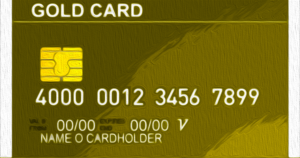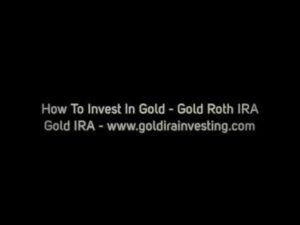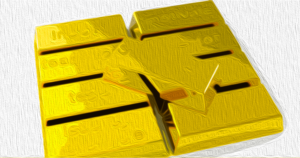You have received precious metals as a gift from your loved one. Now you are uncertain what to do. You have to decide whether you want to store the coins in a safe place, or if you should sell them and pay capital gains tax. Or, do open an individual retirement account that is gold-funded. You can make the best financial decisions by understanding the tax implications of your options.
We will discuss the inheritance tax requirements for inherited silver and gold. Also, how to file your returns.
Are Inherited Coins and Gold Bullion subject to a tax?
Federally, the inheritance tax on gold bullion coins and other inherited precious metal assets can be fairly fair. Federal tax is not required if your inherited precious metals are less than $12.9 million. This number represents the entirety of your estate.
You should be aware that each state may have its own inheritance tax with more stringent requirements. In Pennsylvania, for example, the rate you pay will be determined by your relationship with the dependent. Pennsylvania's inheritance rules state that surviving spouses are exempt from paying tax dues. However, a blood relative (e.g. a sibling) may need to pay 12% and a friend or family member may need to pay 15%.
You may have to pay taxes if the person who you are inheriting precious metals or gold dies in a country with tax implications.
These tax implications only apply to the receipt of your inherited coins. Federal taxes will apply if you decide to sell precious metals. Your rate will be determined by the Internal Revenue Service (IRS). It will be based on fair market value. The maximum rate is 28%. We will explain this below.
How is the Inherited Coin Tax Calculated
If the inheritance of a loved one is substantial enough to be subject to estate taxes (i.e. it exceeds $12.9 million), you will need to pay an estate tax percentage. This can range from 18% to 40 percent. Except for the rare states that tax inheritances of precious metals, federal taxes will not be a concern.
Your inherited precious metals may be sold immediately or they may mature in your precious metal portfolio for several years or decades before being sold. You will have to pay either the marginal tax rate or capital gains tax when you sell them.
The cost basis is the first step in determining the capital gains tax rate for precious metals. The cost basis for gold and other precious metals is the market value at the time the person dies. Capital gains are the profits from the sale and not the total proceeds.
Let's take an example. Imagine that 100 ounces worth of gold were inherited from your father. At the time, they cost $1,330 an ounce. You sell the gold for $1800 an ounce after a few years, while still in the 39.6% tax bracket. The following is the math you would use:
- Cost Basis: 100 ounces x $1.330 = $133,000
- Sale proceeds: 100 ounces x $1,800 = $180,000
- Capital gains: $180,000 to $133,000 = $47,000
- You owe 28% x $47,000 = $13,160
The above information does not apply to physical gold or precious metals. For capital gains, short- and long term, precious metal bank accounts, such as stocks, mutual funds, or precious metals IRAs will have different requirements. The above calculation can be used to calculate your coin collection.
Are You Able to Avoid the Tax
Precious metals (including physical gold and silver coins) are capital assets. This means that you will need to pay your federal tax bill after selling your bullion coins or bars. There are two options if you wish to receive your inheritance tax-free.
- Keep your precious metals safe: Selling precious metals is not the best way to avoid tax. Your gold and silver can be stored in a safe place, which will allow it to increase in cash value over time. Trusts are a great way to transfer all of your estate, including silver and gold, to loved ones tax-advantaged.
- You can open a tax-advantaged IRA if you wish to sell your investment. You have the option of opening a Roth account or a traditional account depending on how you want them taxed. You can receive various tax benefits upon withdrawal when you reach 59.5
Who is responsible for paying the Inherited Coin Taxes on Gold?
Any assets in the estate are subject to taxes. This includes a coin collection, precious metals, and gold. The assets are not taxed until they are sold. Therefore, the beneficiary is responsible for capital gains taxes depending upon the asset's value, cash profits from the sale and their tax bracket. Beneficiaries will be subject to additional requirements in less common situations, such as estates exceeding $12.9 million. This is determined by the cash value.
How to Report Inherited Coins of Gold on Your Tax Return
You must declare the profit on your tax return if you sell silver or gold assets. To determine the cash value of your assets or coins, have them professionally appraised before you sell. Don't accept prices that are too low or high for the coins' value. This can have an impact on your tax rate.
You will need Schedule D to complete your Form 1040 when you are ready to file your tax return. Depending on whether sales make up part of your income, you may need to fill out Form 1099-B. For the following bars and coins, you will need Form 1099-B
- U.S. 90% silver dimes
- Quarter- or half-dollar
- 25 + 1 ounce Gold Maple Leaf
- Gold Krugerrand
- Mexican Gold Onza coins
- Over 1 kg or 1000 troy ounces of gold and silver bars
Are there any exclusions or deductions when you inherit gold coins?
Capital losses can be used to offset tax liabilities if you make a loss on your precious metals or physical gold sale. If you sell gold at $200 per ounce and then net the difference using the above example, you could save $200 by carrying forward your tax loss.
What happens if the Inherited Coin tax isn't paid?
The Internal Revenue Service (IRS), if you fail to file taxes on your gold and other precious metals correctly, may impose penalties such as the Failure To File Penalty up to 25% of the total amount owed, tax liens against property, and many more. These consequences are why you need to file taxes for your gold and other precious materials.
You Can Find Tax-advantaged Precious metals Retirement Accounts that Align with Your Goals Today
Whether you want to inherit gold, or buy and sell gold in the future, a tax advantaged IRA can help you mature your investments and reduce tax liabilities. Learn About Gold can match you with a precious metals company and IRA custodian to meet your needs.
Find a Gold IRA Partner quiz now, or contact Learn About Gold if you have any questions.
Frequently Asked Questions
What does a gold IRA look like?
The Gold Ira Accounts are tax-free investment options for those who want to make investments in precious metals.
Physical gold bullion coin can be purchased at any time. You don't have a retirement date to invest in gold.
An IRA allows you to keep your gold forever. Your gold assets will not be subjected tax upon your death.
Your heirs inherit your gold without paying capital gains taxes. You don't need to include your gold in your final estate report, as it isn't part of the estate.
You'll first have to set up an individual retirement account (IRA) to open a gold IRA. After you have done this, an IRA custodian will be assigned to you. This company acts in the role of a middleman between your IRS agent and you.
Your gold IRA custody will take care of the paperwork and send the forms to IRS. This includes filing annual reports.
Once you've established your gold IRA, you'll be able to purchase gold bullion coins. The minimum deposit is $1,000. A higher interest rate will be offered if you invest more.
When you withdraw your gold from your IRA, you'll pay taxes on it. You'll have to pay income taxes and a 10% penalty if you withdraw the entire amount.
However, if you only take out a small percentage, you may not have to pay taxes. There are exceptions. If you take out 30% of your total IRA assets or more, you will owe federal income taxes and a 20 percent penalty.
You should avoid taking out more than 50% of your total IRA assets yearly. A violation of this rule can lead to severe financial consequences.
How to Open a Precious Metal IRA?
The first step is to decide if you want an Individual Retirement Account (IRA). Once you have decided to open an Individual Retirement Account (IRA), you will need to complete Form 806. Next, fill out Form 5204. This will determine the type of IRA that you are eligible for. You must complete this form within 60 days of opening your account. Once this is done, you can start investing. You may also choose to contribute directly from your paycheck using payroll deduction.
You must complete Form 8903 if you choose a Roth IRA. Otherwise, the process is identical to an ordinary IRA.
To qualify for a precious-metals IRA, you'll need to meet some requirements. The IRS requires that you are at least 18 years old and have earned an income. You cannot earn more than $110,000 annually ($220,000 if married filing jointly) in any one tax year. You must also contribute regularly. These rules are applicable whether you contribute through your employer or directly from the paychecks.
An IRA for precious metals allows you to invest in gold and silver as well as platinum, rhodium, and even platinum. However, you won't be able purchase physical bullion. This means you can't trade shares of stock and bonds.
Your precious metals IRA can be used to directly invest in precious metals-related companies. This option is offered by some IRA providers.
There are two major drawbacks to investing via an IRA in precious metals. First, they are not as liquid or as easy to sell as stocks and bonds. This makes them harder to sell when needed. Second, they don't generate dividends like stocks and bonds. Therefore, you will lose more money than you gain over time.
How is gold taxed within a Roth IRA
The tax on an investment account is based on its current value, not what you originally paid. If you invest $1,000 into a mutual fund, stock, or other investment account, then any gains are subjected tax.
The money can be withdrawn tax-free if it's deposited in a traditional IRA (or 401(k)). Taxes are only charged on capital gains or dividends earned, which only apply to investments longer than one calendar year.
Each state has its own rules regarding these accounts. In Maryland, for example, withdrawals must be made within 60 days of reaching the age of 59 1/2 in order to qualify. Massachusetts allows you to delay withdrawals until April 1. New York has a maximum age limit of 70 1/2. You should plan and take distributions early enough to cover all retirement savings expenses to avoid penalties.
What are the pros & cons of a Gold IRA?
An Individual Retirement Account (IRA), unlike regular savings accounts, doesn't require you to pay tax on interest earned. This makes an IRA a great choice for people who are looking to save money but don’t want to pay any tax on the interest earned. This type of investment has its downsides.
To give an example, if your IRA is withdrawn too often, you can lose all your accumulated funds. The IRS may prohibit you from withdrawing funds from your IRA before you are 59 1/2 years of age. If you do withdraw funds, you'll need to pay a penalty.
Another disadvantage is that you must pay fees to manage your IRA. Many banks charge between 0.5% and 2.0% per year. Others charge management fees that range from $10 to $50 per month.
Insurance will be required if you would like to keep your cash out of banks. Insurance companies will usually require that you have at least $500,000. You may be required by some insurers to purchase insurance that covers losses as high as $500,000.
You will need to decide how much gold you wish to use if you opt for a gold IRA. Some providers restrict the amount you can own in gold. Others allow you to pick your weight.
It is also up to you to decide whether you want to purchase physical gold or futures. Gold futures contracts are more expensive than physical gold. Futures contracts offer flexibility for buying gold. They let you set up a contract that has a specific expiration.
You'll also need to decide what kind of insurance coverage you want. The standard policy does NOT include theft protection and loss due to fire or flood. It does provide coverage for damage from natural disasters, however. If you live in a high-risk area, you may want to add additional coverage.
Apart from insurance, you should consider the costs of storing your precious metals. Storage costs are not covered by insurance. Banks charge between $25 and $40 per month for safekeeping.
You must first contact a qualified custodian before you open a gold IRA. A custodian is responsible for keeping track of your investments. They also ensure that you adhere to federal regulations. Custodians can't sell assets. They must instead keep them for as long as you ask.
Once you have chosen the right type of IRA to suit your needs, it is time to fill out paperwork defining your goals. You must include information about what investments you would like to make (e.g. stocks, bonds and mutual funds). You should also specify how much you want to invest each month.
After filling in the forms, please send them to the provider. The company will review your application and send you a confirmation letter.
A financial planner is a good idea when opening a gold IRA. Financial planners are experts at investing and can help you determine which type of IRA is best for you. You can also reduce your insurance costs by working with them to find lower-cost alternatives.
What are the benefits of a Gold IRA?
You can save money on retirement by putting your money into an Individual Retirement Account. It is tax-deferred until it's withdrawn. You have complete control over how much you take out each year. There are many types available. Some are better suited for college students. Some are for investors who seek higher returns. For example, Roth IRAs allow individuals to contribute after age 59 1/2 and pay taxes on any earnings at retirement. However, once they begin withdrawing funds, these earnings are not taxed again. This account is a good option if you plan to retire early.
A gold IRA is similar to other IRAs because it allows you to invest money in various asset classes. Unlike a regular IRA, you don't have to worry about paying taxes on your gains while you wait to access them. This makes gold IRA accounts a great choice for those who want their money to be invested, not spent.
An additional benefit to owning gold through an IRA, is the ease of automatic withdrawals. This eliminates the need to constantly make deposits. To avoid missing a payment, direct debits can be set up.
Finally, gold remains one of the best investment options today. It is not tied to any country so its value tends stay steady. Even in economic turmoil, gold prices tends to remain relatively stable. Therefore, gold is often considered a good investment to protect your savings against inflation.
Should You Buy Gold?
In the past, gold was considered a haven for investors during economic turmoil. Many people are now turning their backs on traditional investments like stocks and bonds, and instead look to precious metals like Gold.
While gold prices have been rising in recent years they are still low relative to other commodities, such as silver and oil.
Some experts think that this could change in the near future. They say that gold prices could rise dramatically with another global financial crisis.
They also point out that gold is becoming popular because of its perceived value and potential return.
Consider these things if you are thinking of investing in gold.
- Before you start saving money for retirement, think about whether you really need it. It is possible to save for retirement while still investing your gold savings. However, you can still save for retirement without putting your savings into gold.
- Second, make sure you understand what you're getting yourself into before you start buying gold.There are several different types of gold IRA accounts available. Each type offers varying levels and levels of security.
- Keep in mind that gold may not be as secure as a bank deposit. Losing your gold coins could result in you never being able to retrieve them.
If you are thinking of buying gold, do your research. Protect your gold if you already have it.
Statistics
- Contribution limits$6,000 (49 and under) $7,000 (50 and up)$6,000 (49 and under) $7,000 (50 and up)$58,000 or 25% of your annual compensation (whichever is smaller) (lendedu.com)
- (Basically, if your GDP grows by 2%, you need miners to dig 2% more gold out of the ground every year to keep prices steady.) (smartasset.com)
- Gold is considered a collectible, and profits from a sale are taxed at a maximum rate of 28 percent. (aarp.org)
- Instead, the economy improved, stocks rebounded, and gold plunged, losing 28 percent of its value in 2013. (aarp.org)
- If you accidentally make an improper transaction, the IRS will disallow it and count it as a withdrawal, so you would owe income tax on the item's value and, if you are younger than 59 ½, an additional 10% early withdrawal penalty. (forbes.com)
External Links
finance.yahoo.com
forbes.com
- Gold IRA: Add some sparkle to your retirement nest egg
- Understanding China's Evergrande Crisis – Forbes Advisor
cftc.gov
law.cornell.edu
- 7 U.S. Code SS7 – Designation boards of trade as contract market authorities
- 26 U.S. Code SS 408 – Individual retirement accounts
How To
Tips for Investing in Gold
Investing in Gold is one of the most popular investment strategies worldwide. There are many advantages to investing in Gold. There are many ways you can invest in gold. Some people buy physical gold coins, while others prefer investing in gold ETFs (Exchange Traded Funds).
Before you buy any type of gold, there are some things that you should think about.
- First, check to see if your country permits you to possess gold. If so, then you can proceed. You can also look at buying gold abroad.
- Second, it is important to know which type of gold coin you are looking for. You can choose between yellow gold and white gold as well as rose gold.
- Thirdly, it is important to take into account the gold price. It is best to begin small and work your ways up. You should diversify your portfolio when buying gold. Diversify your investments in stocks, bonds or real estate.
- Last but not least, remember that gold prices fluctuate frequently. Therefore, you have to be aware of current trends.
—————————————————————————————————————————————————————————————-
By: Learn About Gold
Title: Understanding the Tax on Inherited Gold Coins: A Full Guide
Sourced From: learnaboutgold.com/blog/tax-on-inherited-gold-coins/?utm_source=rss&utm_medium=rss&utm_campaign=tax-on-inherited-gold-coins
Published Date: Mon, 20 Mar 2023 23:53:00 +0000
















